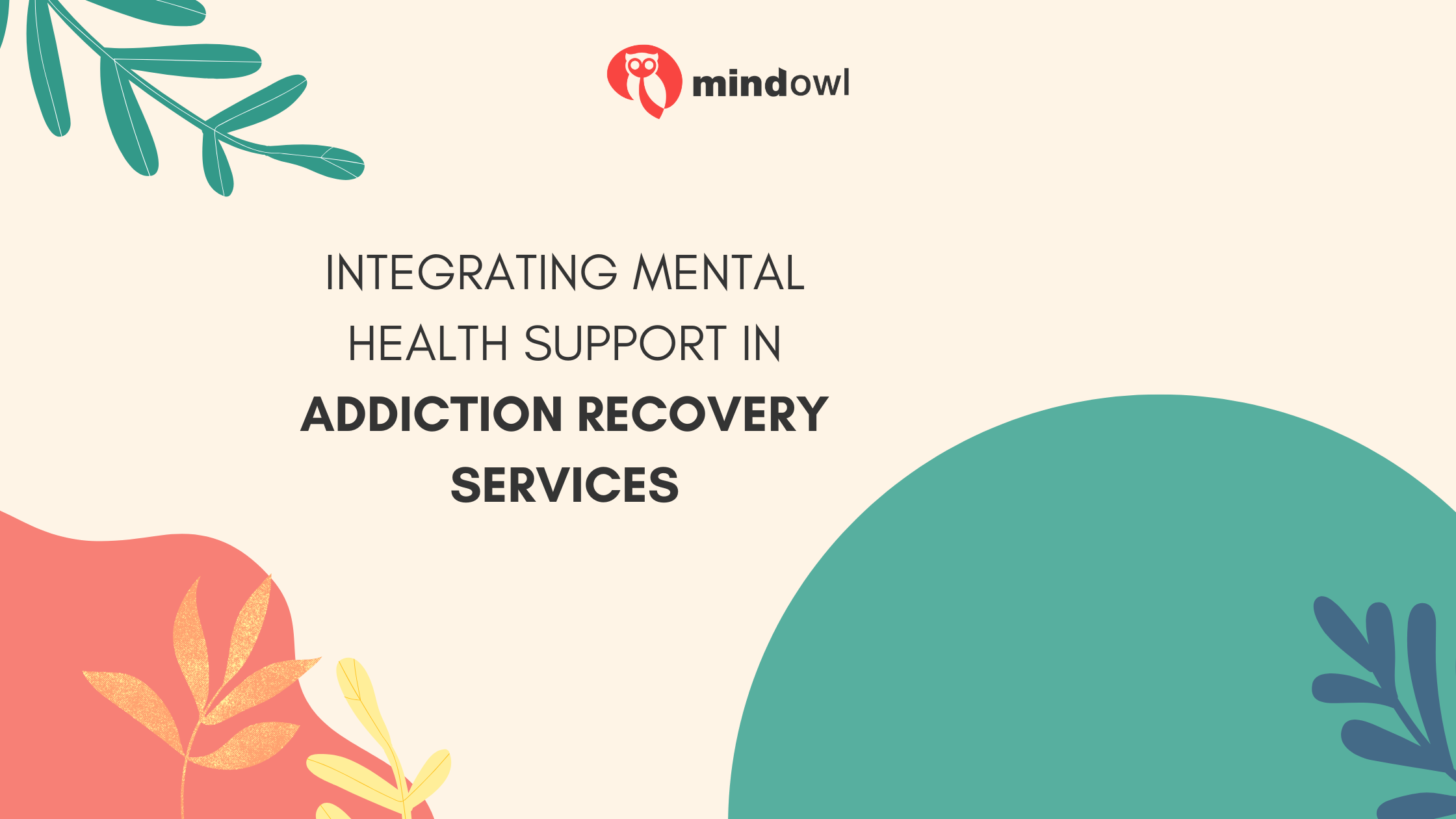
How does mental health support integrate with modern addiction treatment approaches? You’re not alone. Given the fact that over 40.3 million Americans experience substance use disorders comprehensive care remains vitally essential.
The good news? Modern treatment methods continue to evolve as the combination of mental health support transforms recovery results.
What’s Coming Up:
- Understanding Dual Diagnosis Treatment
- The Impact of Mental Health Support
- Key Components of Integrated Care
- Benefits of Combined Treatment
- Finding the Right Program
- Success Stories and Outcomes
- Latest Treatment Innovations
Understanding the Connection: Mental Health and Addiction
The connection between mental health and addiction displays a complicated and entwined structure. Treatment outcomes demonstrate marked improvement when providers address both mental health and addiction together. Research demonstrates that 42% of people who finish full treatment programs reach their recovery objectives.
When you tour the facility at an alcohol rehab in Boston, you’ll notice that modern treatment centers are designed to address both mental health and addiction simultaneously. The current understanding which recognizes successful recovery depends on dual wellness care drives this integrated treatment approach.
The Impact of Comprehensive Mental Health Support
Combining mental health services into addiction treatment programs produces outstanding results. The latest statistical data reveals that treatment programs which offer combined mental health and addiction services produce superior outcomes.
- Completion rates reach 42% for integrated programs as opposed to conventional treatment programs.
- Relapse rates for patients in comprehensive treatment programs fall between 40-60%, which matches the relapse rates of various chronic diseases.
- Increased long-term success in recovery
Today’s recovery centers understand that mental health treatment forms the essential basis for their successful treatment programs.
Key Components of Integrated Care
Successful integrated treatment programs must include multiple essential elements.
1. Professional Mental Health Assessment
A thorough evaluation is conducted for every patient to identify:
- Existing mental health conditions
- Trauma history
- Current psychological needs
- Family mental health history
- Co-occurring disorders
- Previous treatment experiences
2. Customized Treatment Plans
The treatment plans address dual needs by customizing approaches for addiction recovery and mental health support.
- Individual therapy sessions
- Group counseling
- Medication management when necessary
- Family support services
- Skill-building workshops
- Holistic healing approaches
3. Peer Support Services
The adoption of peer support services grew by 15% in 2024 which demonstrates their expanding significance in recovery processes. These services provide:
- Shared experience support
- Real-world coping strategies
- Community connection
- Recovery motivation
- Accountability partnerships
- Long-term support networks
The Science Behind Integrated Treatment
The biological relationship between mental health and addiction demonstrates the effectiveness of integrated treatment approaches. Research shows that:
Neurological Connections
- Both conditions affect similar brain regions
- Treatment medications may work for both issues
- Recovery involves healing multiple neural pathways
- Early intervention improves outcomes
Psychological Factors
- Trauma often underlies both conditions
- Coping mechanisms overlap
- Recovery requires addressing both aspects
- Support systems benefit both areas
Evidence-Based Treatment Approaches
Modern integrated treatment relies on proven methods:
1. Cognitive Behavioral Therapy (CBT)
CBT helps patients:
- Identify triggering situations
- Develop healthy coping mechanisms
- Challenge negative thought patterns
- Build resilience for recovery
2. Dialectical Behavior Therapy (DBT)
DBT focuses on:
- Emotional regulation
- Mindfulness practices
- Interpersonal effectiveness
- Distress tolerance skills
3. Trauma-Informed Care
This approach ensures:
- Safe treatment environments
- Recognition of trauma’s impact
- Appropriate intervention timing
- Cultural sensitivity
Benefits of Combined Treatment Approaches
Combining mental health support with addiction recovery yields substantial benefits.
Improved Treatment Outcomes
Recent data shows encouraging trends:
- Data from 2023 indicates a 3% decrease in overdose death rates.
- Enhanced treatment completion rates
- Better long-term recovery success
- Reduced emergency room visits
Comprehensive Healing
Integrated treatment addresses:
- Root causes of addiction
- Underlying mental health issues
- Trauma and past experiences
- Coping skill development
- Family dynamics
- Social support needs
Sustainable Recovery
Combined treatment leads to:
- Stronger relapse prevention strategies
- Better stress management skills
- Improved emotional regulation
- Enhanced life skills
- Healthier relationships
- Greater self-awareness
Finding the Right Program
Select these factors when looking for a treatment program that includes mental health support:
1. Program Components
- Evidence-based treatments
- Licensed mental health professionals
- Comprehensive assessment processes
- Aftercare planning
- Family involvement options
- Continuing care support
2. Facility Credentials
- Proper licensing and accreditation
- Experienced staff
- Proven success rates
- Modern treatment approaches
- Quality assurance measures
- Patient satisfaction data
3. Treatment Approach
- Individualized care plans
- Family involvement options
- Holistic treatment methods
- Ongoing support services
- Cultural competency
- Evidence-based practices
The Role of Family Support
Family involvement significantly impacts recovery success:
Education and Support
- Understanding both conditions
- Learning communication skills
- Identifying enabling behaviors
- Building healthy boundaries
Healing Together
- Family therapy sessions
- Group support meetings
- Shared recovery goals
- Improved relationships
Moving Forward with Integrated Treatment
Effective addiction recovery treatment must include comprehensive care that simultaneously manages substance usage disorders together with mental health conditions. Integrated treatment approaches have become essential due to the fact that substance use disorders affect 40.3 million Americans.
Contemporary treatment centers take the initiative through:
- Implementing dual diagnosis programs
- Expanding mental health services
- Increasing access to comprehensive care
- Developing innovative treatment approaches
- Utilizing technology in treatment
- Creating sustainable recovery plans
Innovation in Integrated Treatment
The integrated mental health and addiction treatment field advances through exciting new developments.
Technology Integration
Modern treatment programs are embracing digital solutions:
- Telehealth counseling options
- Mobile recovery support apps
- Virtual reality therapy sessions
- Remote monitoring capabilities
- Digital community support
- Online educational resources
Advanced Treatment Methods
Cutting-edge approaches include:
- Neurofeedback therapy
- Genetic testing for medication matching
- Mindfulness-based stress reduction
- Adventure therapy programs
- Art and music therapy
- Somatic experiencing
Measuring Success
Treatment centers are using sophisticated metrics:
- Outcomes tracking systems
- Quality of life assessments
- Long-term follow-up data
- Patient satisfaction surveys
- Recovery milestone tracking
- Continuous improvement protocols
Practical Implementation Steps
Treatment facilities aiming to strengthen their mental health integration programs should consider the following strategies.
1. Staff Development
- Cross-training in both disciplines
- Regular skill updates
- Certification programs
- Team collaboration training
- Cultural competency education
- Trauma-informed care training
2. Program Structure
- Clear treatment pathways
- Flexible scheduling options
- Crisis intervention protocols
- Family program integration
- Aftercare planning
- Community partnerships
3. Quality Assurance
- Regular program assessment
- Patient feedback systems
- Outcome measurement
- Staff performance reviews
- Continuous improvement plans
- Best practice updates
Ready to Take the Next Step?
Realizing the necessity of integrated mental health and addiction treatment serves as the initial step toward recovery. Proper support enables sustainable recovery because comprehensive treatment produces successful outcomes.
Remember:
- Treatment completion rates are improving
- The frequency of relapse incidents matches the rates seen in other chronic health conditions.
- Support services are expanding
- Treatment options are more accessible than ever
- Success rates continue to improve
- Resources are increasingly available
When you select a treatment program that tackles both mental health issues and addiction together you create the strongest foundation for permanent recovery.
The Path Forward: Embracing Comprehensive Care
Adding mental health support within addiction recovery services marks a basic transformation in our methodology towards healing and recovery. The future of addiction treatment shows great potential because recent statistics reveal successful results from comprehensive care models in widespread use.
Key takeaways for success:
For Treatment Providers
- Maintain up-to-date training
- Implement evidence-based practices
- Foster collaborative care environments
- Monitor and measure outcomes
- Adapt to emerging research
- Prioritize patient-centered care
For Individuals Seeking Treatment
- Research comprehensive programs
- Ask about integrated approaches
- Verify staff credentials
- Consider family involvement
- Plan for long-term support
- Stay committed to the process
For Healthcare Systems
- Support integrated programs
- Increase accessibility
- Promote early intervention
- Maintain quality standards
- Track treatment outcomes
- Foster community partnerships
Successful recovery depends on integrated care programs that address both mental health issues and addiction together. The adoption of this approach enables us to advance patient outcomes and deliver hope for permanent recovery to millions of Americans who suffer from these interconnected health issues.
MindOwl Founder – My own struggles in life have led me to this path of understanding the human condition. I graduated with a bachelor’s degree in philosophy before completing a master’s degree in psychology at Regent’s University London. I then completed a postgraduate diploma in philosophical counselling before being trained in ACT (Acceptance and commitment therapy).
I’ve spent the last eight years studying the encounter of meditative practices with modern psychology.

